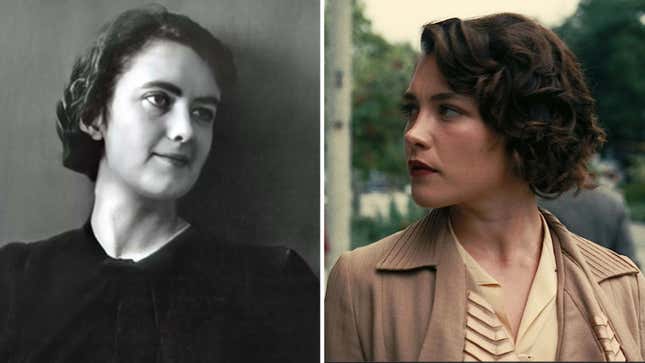Hello, Hollywood: It’s Time for a Jean Tatlock Movie
Tatlock was a cool, complex, and compelling woman who did a lot more in her 29 years of life than ride dick and reject flowers.
EntertainmentMovies

Over the weekend, like droves of others across the country, I participated in the cultural phenomenon known as Barbenheimer. While Barbie was—in my colleague Rich Juzwiak’s words—a “clever dressing-down of the patriarchy,” Oppenheimer offered a more succinct, searing look at a byproduct of it: state-sanctioned mass destruction in pursuit of ultimate dominance and one man’s guilty conscience only after the damage was done.
By now you’ve seen the range of responses to Oppenheimer, from the essential to the deeply silly. Obviously, women didn’t get an invitation to the build-a-bomb bonanza of the 1940s—so the fact that a woman doesn’t speak until 20 minutes into the movie makes sense. Still, the film could have benefitted from, like, a few more details about J. Robert Oppenheimer’s lover, Jean Tatlock.
Tatlock, portrayed by Florence Pugh, isn’t in the film all that long, and yet, she’s inspired a slew of questions from audiences—namely, who, apart from Oppenheimer’s apparent situationship, was she? In short: a cool, complex, and compelling woman who did a lot more in her 29 years of life than ride dick, reject flowers, and ultimately, choose to end it (supposedly).
-

-

-

-

-

-

-

-

-

-

-

-

-

-

-

-

-

-

-

-

-

-

-

-

-

-

-

-

-

-

-

-

-

-

-

-

-

-

-

-








































